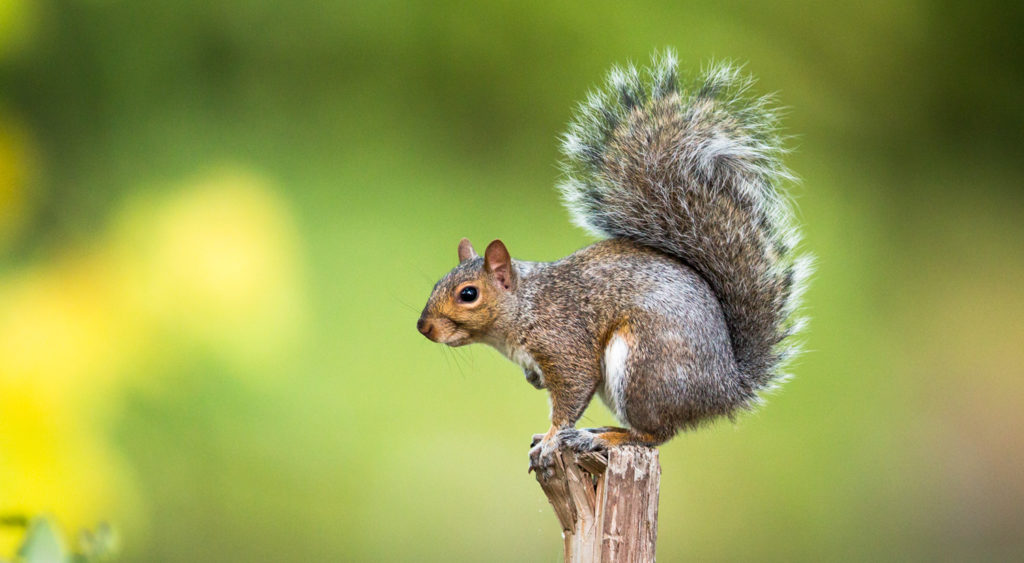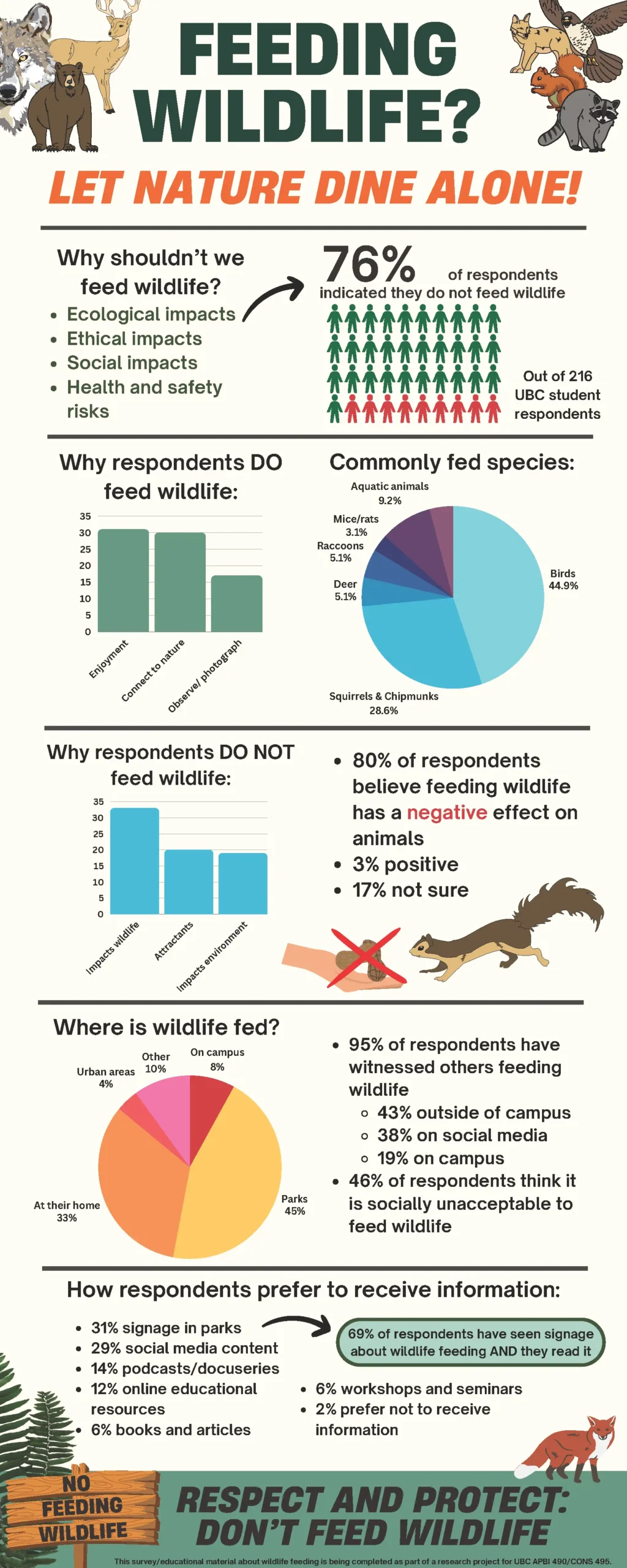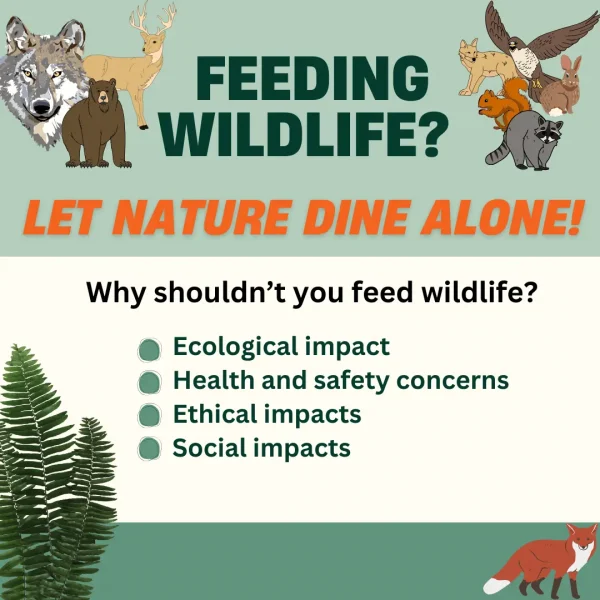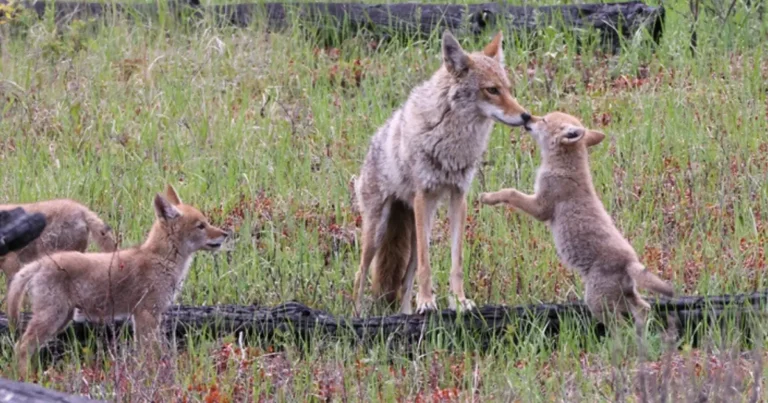
The Fur-Bearers collaborated with UBC students on a research project that focused on the issue of wildlife feeding. The partnership was part of UBC Course APBI 490 / CONS 495 – Human Wildlife Conflict, led by instructor Nadia Xenakis. We are grateful for the opportunity to participate as a community partner for this important course.
Research project on wildlife feeding
The group’s research project focused on the issue of wildlife feeding. Intentional and unintentional feeding leads to negative outcomes for animals, humans, and ecosystems. The Fur-Bearers published a literature review on urban feeding of fur-bearing animals, and this project examined many of the core issues on this topic.
By developing a survey around wildlife feeding, students gained insight into questions such as: What motivates people to feed wildlife? What are the reasons people don’t feed wildlife? If people feed wildlife, what animals do they feed and where? What kind of educational messaging is effective to communicate the importance of not feeding wildlife?
Students designed a survey and distributed to the UBC student community. The survey received 216 valid responses. These responses were compiled and analyzed by the students and presented to the class, along with key findings and management implications. Students summarized the results in the infographic below.

Note: These results are not necessarily representative of the entire UBC student community.
A few themes emerged from the survey: most respondents do not feed wildlife and identify the negative impact on animals as the primary reason for not feeding wildlife; almost all respondents have witnessed people feeding wildlife in person or online; social media and signage in parks were identified as key educational mediums to communicate the importance of not feeding wildlife to the public; and feeding wildlife is considered socially unacceptable to 46% of respondents (21% considered it socially acceptable, with 33% unsure).
This partnership provided a unique opportunity for dialogue and applied research on the issue of wildlife feeding, as well as thinking creatively on developing educational messaging. Our work together will further students’ understanding on the topic and will help inform The Fur-Bearers’ education and advocacy related to wildlife feeding.
We want to give a huge shoutout to instructor Nadia Xenakis for her leadership throughout the course, and to the students who were part of this research project: Emma, Kyden, Bari, Elysse, and Heather. Well done everyone!

